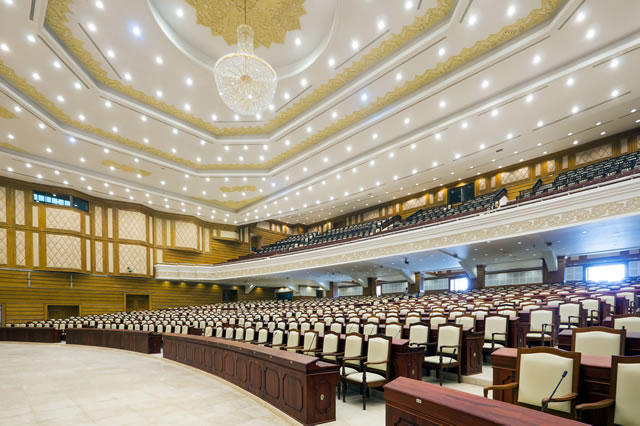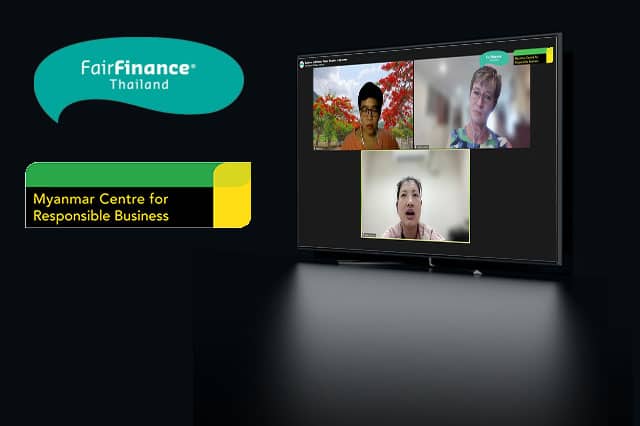Fine Line between FOC and Corruption

The recent controversy concerning Htoo Group’s provision of free-of-charge hotel facilities at their Shwe Sann Ein Hotel for training of National League for Democracy MPs-elect provoked a debate in our Myanmar Centre for Responsible Business office about businesses contributing to political parties and government.
by Vicky Bowman
What do international standards and business ethics guidelines say about this? They do not ban companies from making contributions in cash or kind to political parties. In-kind contributions could include the provision to political parties of free-of-charge facilities, such as use of meeting places or corporate jets, or paid leave-of-absence for an employee to campaign on behalf of a party. Corporate contributions fund election campaigns in many countries, not least the United States.
The “Business Principles for Countering Bribery” published by Transparency International (TI), the leading global NGO working on corruption, state that if a business wants to make a contribution to a political party, it is important that this decision is made according to local law, which in some countries imposes disclosure requirements or an upper limit on political contributions. The contribution should be recorded in writing, undertaken openly, and ideally published in annual reports or some other form.
TI also advises that everyone in the company needs to know that any decision to make a political contribution on behalf of the business must be made with the agreement of the business. It should never be a decision made by one person without full agreement of the management. Nor should a political contribution be made direct to an individual.
Importantly, TI also advises businesses to be sensitive to timing. If a company is in negotiation for a government contract, licence or permit, or has a sensitive issue which the government is reviewing, political contributions to the party in power may be seen as a bribe and should be avoided. Even contributions to a party currently in opposition could be seen as a down-payment for future favours.
To avoid all doubt, many international companies have started adopting policies of not making political contributions at all. This does not, of course, prevent their major shareholders from contributing on a personal basis. Even in Myanmar, some companies are adopting this approach. The Myanmar Centre for Responsible Business’ 2015 “Transparency in Myanmar Enterprises” (TiME)/Pwint Thit Sa report examined how 100 large Myanmar companies were addressing this issue. Eight had adopted explicit policies on political contributions – although that is no guarantee that they were being strictly applied.
These included Serge Pun and Associates, Max Myanmar, KBZ, Myanmar Petroleum Resources Limited, City Mart Holding, Parami, SMART Myanmar and Asia World. For example, City Mart’s code of conduct says, “We do not participate, directly or indirectly, in party politics and we do not make any form of donation to political associations or individual politicians in Myanmar or elsewhere.”
The other 92 companies studied, however, had yet to address this issue with a published policy. Most of those companies also lacked wider policies on corporate governance.
What about the provision of free-of-charge facilities or other contributions to government? Here companies headquartered in countries which are signatories to the OECD Convention on Combating Bribery of Foreign Public Officials need to be even more vigilant to avoid potential fines or a jail sentence. Most have codes of conduct, such as that of Hilton Hotels which says that employees must not “offer or give a payment, gifts or anything of value to a government official or any person to influence official action or induce commercial activities”.
What does that mean in practice? Free provision of hotel facilities for the wedding of the daughter of a director general signing off on a permit obviously crosses the line. But what about free catering for a government event? Or a donation to a charity recommended by the minister? While a donation to build a school may not appear to be of value to an official, there might be a spin-off construction contract for a relative. Even if that is not the case, if there is any chance of such sponsorship influencing the official’s decision-making there is a risk of corruption.
Again, for the avoidance of doubt, many foreign companies have adopted strict compliance policies that rule out all forms of gifts and payments to government officials and ministries. One Western investor in Myanmar cannot even provide free soft drinks for a local community event if government is involved. Another cannot pay per diems to government officials accompanying their operations.
In the Shwe Sann Ein Hotel case, the media has reported Htoo Group chair U Tay Za as saying that officials from both the President’s Office and the Ministry of Hotels and Tourism told him not to let the NLD use Shwe Sann Ein Hotel. It is worth recalling that the current government has regularly called on hotels to provide free-of-charge facilities for government events, just as big-name Myanmar companies were regularly called on to sponsor military-government projects such as hospitals, schools and sports events. There was even an official name for them: “national entrepreneurs” – as well as the more familiar one that begins with “c”.
Do the Nay Pyi Taw hotels who agree to cater government banquets for free do so in the expectation that this will result in a favourable answer on outstanding permits for their properties in Yangon or Bagan, or access to future land and other opportunities for their conglomerate? Or do they feel they have no choice, given a thwarted government official’s ability to interfere with their legitimate business? They may not even consider such behaviour as corruption. They might regard the additional cost as justification for evading official income tax. The fact that Myanmar’s anti-corruption law currently does not make it illegal for a business to pay a bribe, only for a government official to take it, further confuses the picture.
Whatever their motivations, the time has come to break with the bad habits and unhealthy relationships which have previously existed between parts of government and some Myanmar companies. A light needs to be shone on business contributions, whether to government or political parties.
All Myanmar companies – including, in this case, Htoo Group – should adopt a policy on political contributions. It should either prohibit such contributions or require them to be publicly disclosed. Companies should do this as part of a wider anti-corruption program that, among other things, sets out clearly their approach to dealing with government officials and charitable donations.
Regardless of the gaps in current Myanmar law, it is time for Myanmar business to support the incoming government to deliver its manifesto commitment to “take effective action as necessary in order to establish a society free of corruption”. Businesses should show leadership on transparency and fighting corruption, not least as corruption is ultimately a cost either to their bottom line or to their customers.
Vicky Bowman is director of the Myanmar Centre for Responsible Business and has many years of experience working on responsible business issues within the private sector and government.
This article was originally published in the Myanmar Times
အထက်ပါအကြောင်းအရာနှင့်ပတ်သတ်၍ ဆက်လက်ဖတ်ရှုလိုပါက
- ခရီးသွားလာရေးလုပ်ငန်း
- စာတမ်းအသစ်နှင့် မကြာမီတွင် ကျင်းပပြုလုပ်မည့် ခရီးသွားလုပ်ငန်းကဏ္ဍ၏ လူ့အခွင့်အရေးဆိုင်ရာ အွန်လိုင်းဆွေးနွေးပွဲ
- မြန်မာ့ခရီးသွားလုပ်ငန်းကဏ္ဍအတွက် အဆိုပြုလွှာအသစ်
- Planning for a Brighter Future in Mrauk U: Cultural Heritage and Tourism Management
- 4th National Conference on Communities and Tourism 2019
 English
English မြန်မာ
မြန်မာ မြန်မာ (unicode)
မြန်မာ (unicode)










